
Stand on the results of a survey conducted by BCG and The Network in August through October 2022, involving more than 90,000 job seekers globally and aimed to explore their recruitment preferences, all candidates feel choosing a job is a personal decision, and they are sensitive to "moments of truth," when employers reveal who they really are.
At the time of our survey, 74% of respondents said that they are approached multiple times per year about job opportunities—in fact, 39% said that they are approached every month.
What attracts and motivates them to accept an offer?
Among the answers the survey found some Recruitment myths:
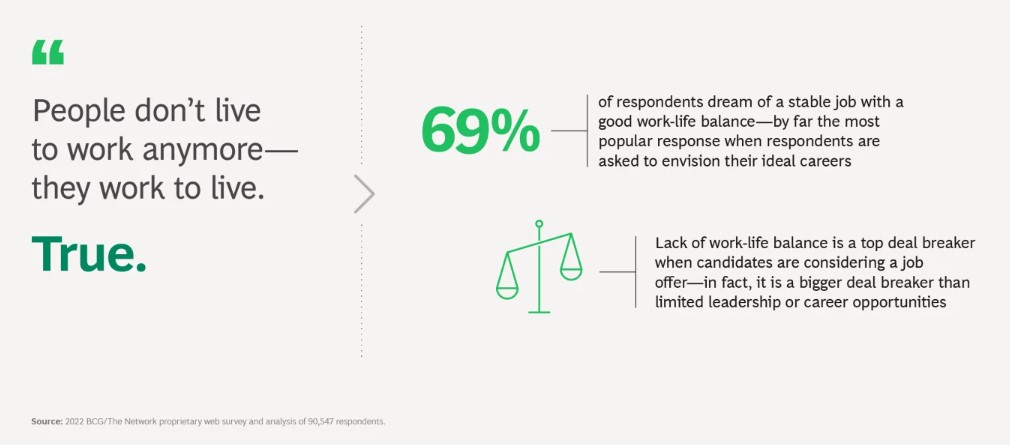
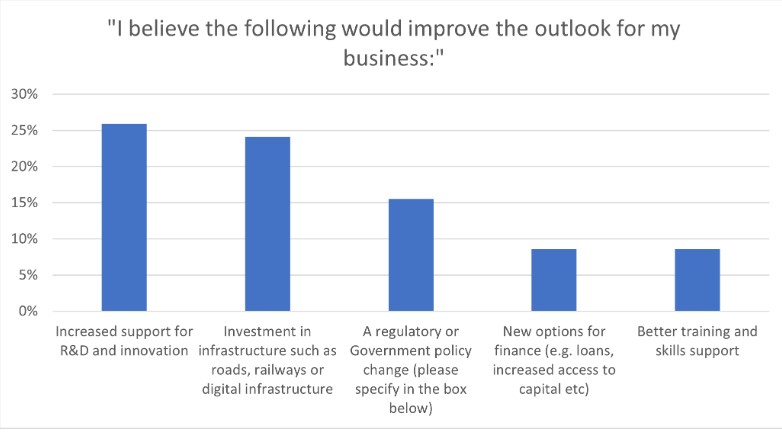
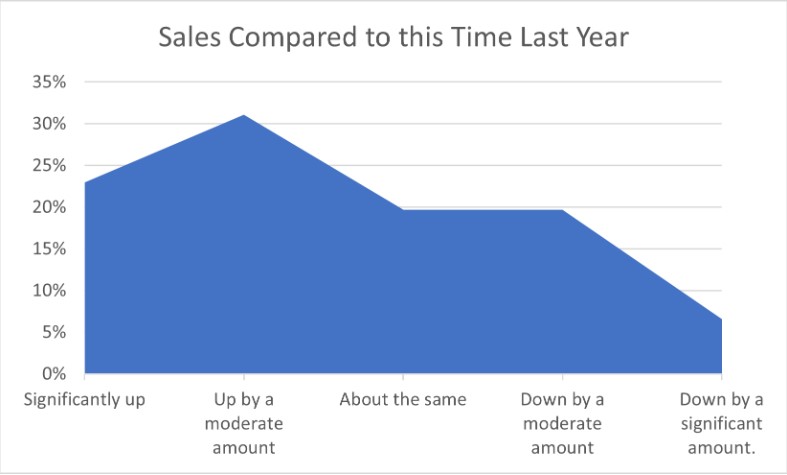
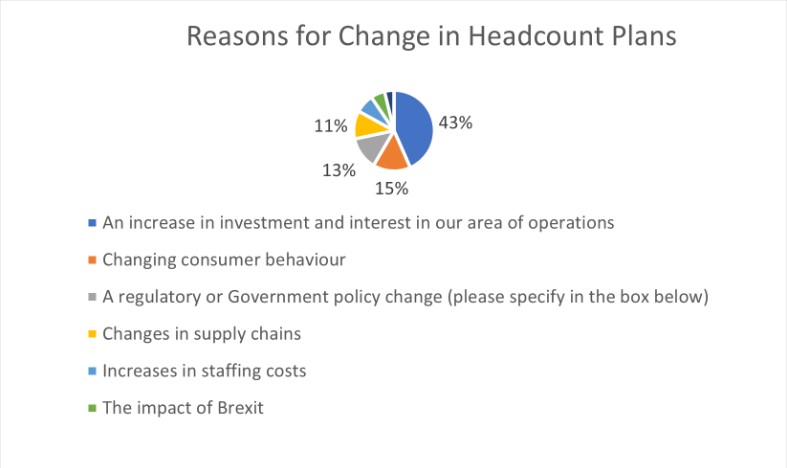
People's desires regarding jobs can vary depending on their career stage and personal circumstances. For example, someone who is just starting their career may prioritize opportunities for growth and development, while someone who is more established in their career may prioritize work-life balance and job stability. Additionally, someone who has a job offer on the table may prioritize salary and benefits, while someone who is considering a career change may prioritize opportunities for a new challenge or passion. It's important for employers to understand these varying desires and tailor their recruitment efforts accordingly.
Most respondents (69%) in our survey said that they desire, above all, a stable job with a good work-life balance. This preference is dominant across job roles, regions, and age groups. Career progress at a good company comes second, and working on exciting products, topics, and technologies is third.
Compensation and work-life balance are generally the two top priorities for a job seeker, but this may change significantly with age:
- For younger workers, learning and development opportunities are very important, while older workers prioritize job security, flexible work arrangements, and appreciation for their work. As workers age, they may become less motivated to learn new things, which could pose a challenge as they need to continuously reskill and upskill to keep up with new workplace demands.
- Workers between 30- and 50-years old value flexibility in work hours and locations due to family commitments
- Workers over 60 prioritize impactful work, appreciation, relationship with a manager, company values, and interesting job content.
In the survey 52% of respondents said that they would refuse an otherwise attractive offer if they had a strong negative experience during recruitment. It’s important for would-be employers to understand a candidate's ideal recruitment journey at each step of the way.
Here some preferences along the recruitment process:
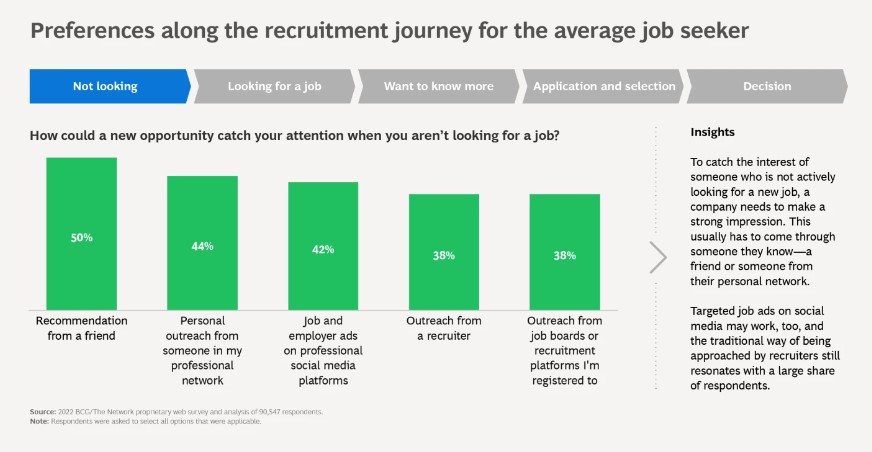
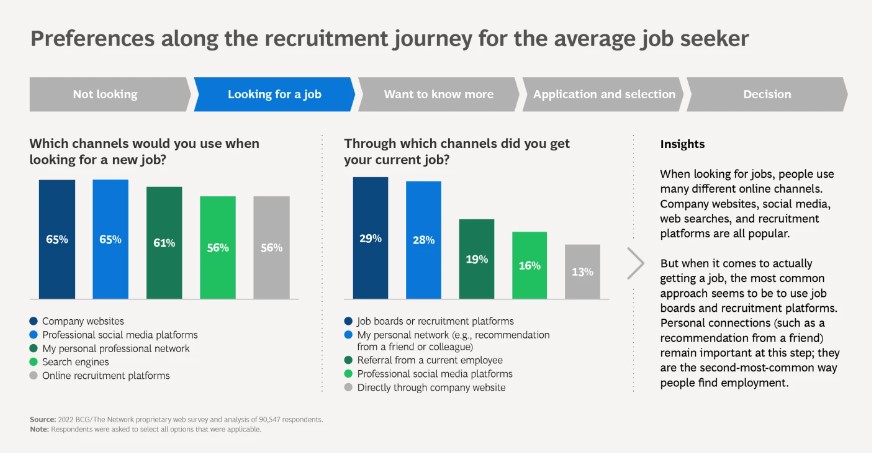
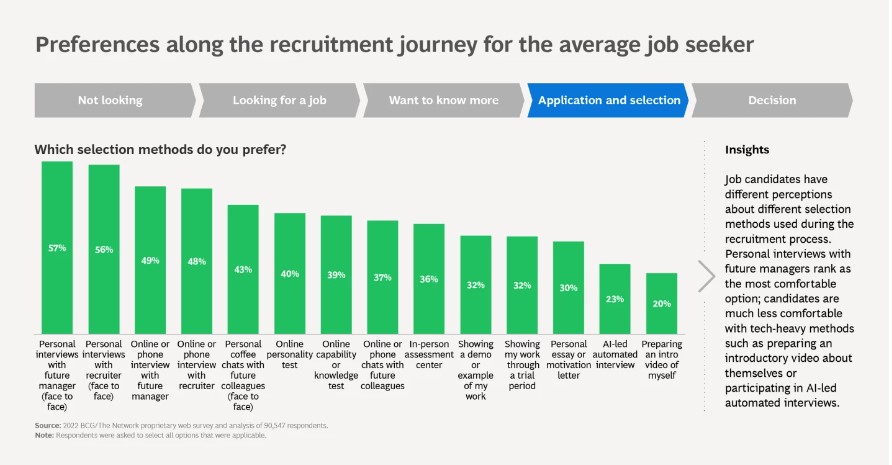
By personalizing the recruitment journey, employers can create a positive experience for job candidates. This means understanding the needs and preferences of different talent personas and adjusting the recruitment approach accordingly. Companies can focus on creating a value-add for the candidate by stripping down the recruitment process to essential steps and optimizing the experience for the candidate. This could involve implementing chatbots or virtual reality tools to showcase the company culture and work environment, providing personalized communication throughout the process, and offering feedback and follow-up after interviews. By reimagining recruitment as a personal journey, employers can stand out in a competitive job market and attract top talent.
READ THE FULL SURVEY HERE